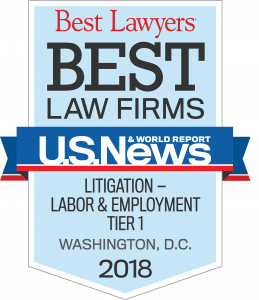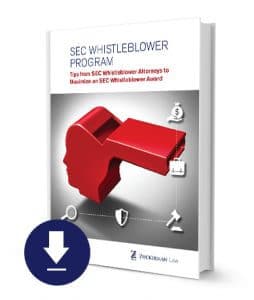In the largest accounting negligence case to go to trial, PricewaterhouseCooopers (PwC) was accused of enabling a $5.5 billion fraud at the bankrupt mortgage lender Taylor Bean & Whitaker (Taylor Bean). Taylor Bean, which had been the largest mortgage lender in the United States not owned by a deposit-taking bank, declared bankruptcy after PwC failed to detect the company’s massive fraud. According to the bankruptcy trustee, PwC gave a clean audit opinion to Colonial BancGroup (Colonial) and confirmed that Colonial’s financial statements were “free of material misstatement” when in fact Colonial’s financial statements were grossly misstated and concealed a multi-billion dollar hole. Taylor Bean and Colonial went bankrupt in 2009 when federal regulators discovered that loans from Colonial to Taylor Bean were secured against assets that did not exist. PwC certified the existence of more than a billion dollars of Colonial assets that did not exist, had been sold to others, or were worthless.
A central issue in the trial was auditor independence. Under the Sarbanes-Oxley Act of 2002 (SOX), it is unlawful for an audit firm to perform an audit if a member of that audit engagement is hired to a top financial oversight position at the company (e.g., chief executive officer, controller, chief financial officer, chief accounting officer). If this hiring occurs, the member of the audit engagement team must have a “cooling off” period of one year before he or she can begin working for the registrant in certain key positions. A narrow exemption to this rule exists for emergencies.
During trial on August 24, 2016, it was revealed that a former senior manager of the PwC engagement team that audited Colonial Bank, Brent Hicks, was hired as Colonial Bank’s chief accounting officer. Per SEC Standards and SOX, Hicks was required to “cool off” for a year prior to beginning work in this position unless an emergency existed. PwC claimed that the difficulty of attracting an executive to take the chief accounting officer job in Montgomery, Alabama constituted such an emergency.
On August 26, 2016, PwC reached a confidential settlement mid-trial. While the settlement will avoid a ruling on whether Hicks qualified for the exemption from auditor independence standards, the apparent failure to adhere to those standards underscores the critical duty of auditors to fulfill their “public watchdog” function, which “demands that the accountant maintain total independence from the client at all times and requires complete fidelity to the public trust.” KPMG Peat Marwick v. National Union Fire Ins., 765 So.2d 36, 38 (2000).
Though it can be difficult for an auditor to oppose a client’s aggressive accounting, the gatekeeper role of auditors requires that auditors remain vigilant and perform impartial and thorough audits. Fortunately, federal laws protect auditors against retaliation and incentivize reporting to regulators after an auditor has exhausted internal channels.
Whistleblower Protections and Rewards for Auditors
In a landmark decision, the United States Supreme Court in Lawson v. FMR held that employees of contractors of public companies, including employees of accounting and audit firms, are authorized to bring SOX whistleblower retaliation claims. In Lawson, the Court recognized the critical roles that auditors and accountants play in exposing fraud. They are on the front lines and are often in the best position to spot and terminate ongoing fraud. The Court noted:
“Congress plainly recognized that outside professionals–accountants, law firms, contractors, agents, and the like–were complicit in, if not integral to, the shareholder fraud and subsequent cover-up [Enron] officers . . . perpetrated” . . . Indeed, the Senate Report demonstrates that Congress was as focused on the role of Enron’s outside contractors in facilitating the fraud as it was on the actions of Enron’s own officers. See, e.g., S. Rep., at 3 (fraud “occurred with extensive participation and structuring advice from Arthur Andersen . . . which was simultaneously serving as both consultant and independent auditor for Enron” (internal quotation marks and brackets omitted)); id., at 4 (“professionals from accounting firms, law firms and business consulting firms, who were paid millions to advise Enron on these practices, assured others that Enron was a solid investment”); id., at 4-5 (team of Andersen employees were tasked with destroying “physical evidence and documents” relating to Enron’s fraud); id., at 5 (“Enron and Andersen were taking advantage of a system that allowed them to behave in an apparently fraudulent manner”); id., at 11 (Enron’s fraud partly attributable to “the well-paid professionals who helped create, carry out, and cover up the complicated corporate ruse when they should have been raising concerns”); id., at 20-21 (“Enron’s accountants and lawyers brought all their skills and knowledge to bear in assisting the fraud to succeed and then in covering it up.”).
Both SOX and Dodd-Frank afford auditors and accountants substantial protections against retaliation for blowing the whistle on potentially illegal and/or unethical activities at their firm or its client. If a SOX whistleblower prevails on a retaliation claim, he or she may receive:
- lost wages and benefits;
- reinstatement; and
- special damages, which include emotional distress, impairment of reputation, personal humiliation, and other non-economic harm resulting from retaliation.
Recently, a jury awarded $6 million dollars to a whistleblower in a Sarbanes-Oxley retaliation case. The whistleblower in that case objected to senior officers accruing discretionary executive bonuses without Board approval.
To learn more about SOX whistleblower protection, download our free guide Sarbanes-Oxley Whistleblower Protection: Robust Protection for Corporate Whistleblowers
Dodd-Frank also offers whistleblowers protection against retaliation. While very similar to SOX’s whistleblower provision, it offers slightly different remedies (including double payback) and a broader scope of protected whistleblowing. Dodd-Frank protected conduct includes disclosures that are required or protected under SOX, the Securities and Exchange Act of 1934, and any other law, rule, or regulation subject to the jurisdiction of the SEC.
Auditor and Accountant Eligibility for SEC Whistleblower Bounty
Auditors and accountants are also eligible to receive monetary rewards for exposing wrongdoing. In 2010, Dodd-Frank created the SEC Whistleblower Program, which provides rewards to whistleblowers who report violations of the federal securities laws to the SEC. Eligible whistleblowers are entitled to rewards of between 10% and 30% of the monetary sanctions collected in actions brought by the SEC (or related actions brought by other regulatory and law enforcement authorities).
To be eligible for a SEC whistleblower award, the whistleblower must voluntarily provide the SEC with information about a violation of the federal securities laws that has occurred, is ongoing, or is about to occur. The whistleblower’s information must lead to an action that results more than $1 million in monetary sanctions.
In August 2014, an audit and compliance employee received a reward of more than $300,000 for reporting wrongdoing. More recently, in February 2016, the SEC fined Monsanto $80 million for accounting violations that were exposed by one of the company’s accountants. For his efforts, the whistleblower may receive a reward of up to $24 million.
In sum, SOX and Dodd-Frank protects auditors and accountants from retaliation and provides strong incentives to report wrongdoing. For more information about whistleblower rights and protections, contact Zuckerman Law today for a free, confidential consultation at 202-262-8959.
To learn more about the SEC Whistleblower Program, download Zuckerman Law’s eBook: SEC Whistleblower Program: Tips from SEC Whistleblower Attorneys to Maximize an SEC Whistleblower Award:
- See our column in Forbes: One Billion Reasons Why The SEC Whistleblower-Reward Program Is Effective.
- See our column in Going Concern: Sarbanes-Oxley 15 Years Later: Accountants Need to Speak Up Now More Than Ever.
- See our post in Accounting Today: Whistleblower Protections and Incentives for Auditors and Accountants.
whistleblower_lawyers_012017_infographic











